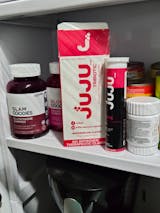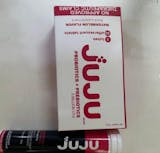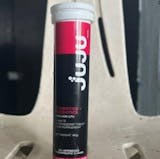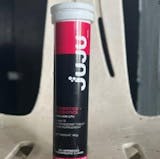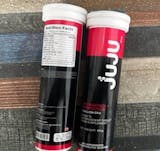Collagen is a protein that plays a vital role in keeping our bodies healthy and strong. It's found in our skin, bones, and joints, helping to maintain their structure and elasticity. In recent years, collagen supplements have become popular for their potential health benefits. This guide will explore how to effectively incorporate collagen into your daily routine, ensuring you reap its rewards for skin health, joint support, and overall wellness.
Understanding the Benefits of Collagen
Collagen is a vital protein that plays a key role in keeping our bodies healthy. It helps maintain skin, joints, and gut health. Here are some of the main benefits of adding collagen to your daily routine:
Skin Health and Elasticity
- Collagen helps keep skin hydrated and may reduce wrinkles.
- It supports skin elasticity, making it look firmer and younger.
- Many people notice improved skin texture after using collagen supplements.
Joint Support and Mobility
- Collagen is essential for maintaining healthy joints and cartilage.
- It can help reduce joint pain and improve mobility, especially for active individuals.
- Studies show that athletes taking collagen supplements experience less soreness after exercise.
Gut Health and Digestion
- Collagen supports the lining of the digestive tract, which can improve gut health.
- It may help with conditions like leaky gut syndrome, promoting better nutrient absorption.
- Collagen's anti-inflammatory properties can soothe the gut and reduce discomfort.
| Benefit | Description |
|---|---|
| Skin Health | Hydrates skin and reduces wrinkles |
| Joint Support | Reduces pain and improves mobility |
| Gut Health | Strengthens gut lining and aids digestion |
Collagen is like a natural booster for your body, helping you look and feel great from the inside out!
Choosing the Right Collagen Supplement
When it comes to selecting a collagen supplement, it’s important to know what to look for. Here are some key points to consider:
Types of Collagen Supplements
Collagen supplements come in various forms, including:
- Hydrolyzed collagen (collagen peptides): These are broken down into smaller pieces for easier absorption. They are often found in powders, capsules, or chewable tablets.
- Collagen protein: Similar to peptides but may have a higher concentration of collagen. These can be found in protein powders or pills.
- Marine collagen: Sourced from fish, this type is primarily Type 1 collagen and is great for those who prefer marine-based options.
- Topical products: Creams and serums that are applied directly to the skin, claiming to improve elasticity and reduce wrinkles.
Ingredients and Purity
When choosing a supplement, check the ingredient list for:
- Additional additives or fillers
- Allergens that may affect you
- Products that are tested by third parties for quality and purity
Look for products that contain additional skin-supporting ingredients such as elastin and hyaluronic acid to maximize benefits.
Bioavailability and Absorption
Not all collagen supplements are created equal. Consider:
- The form of collagen (powder, capsule, etc.)
- How well your body can absorb it
- Any additional ingredients that may enhance absorption
Remember: Always consult with a healthcare professional before starting any new supplement to ensure it’s right for you.
How to Incorporate Collagen into Your Diet
Adding collagen to your daily meals can be simple and fun! Here are some easy ways to do it:
Collagen-Rich Foods
- Include animal-based foods: Collagen is a protein found only in animal foods and seafood. Here’s a list of some great options:
- Chicken skin
- Fish (especially skin and scales)
- Beef
- Boost collagen production: Some plant-based foods can help your body make more collagen. Consider adding:
- Berries
- Leafy greens
- Nuts and seeds
Adding Collagen to Beverages
- Mix it in drinks: Collagen powder dissolves easily in liquids. Try adding it to:
- Smoothies
- Coffee or tea
- Juice or water
- Experiment with flavors: You can also add it to flavored drinks or even soups for a nutritious boost.
Creative Recipes with Collagen
-
Get creative in the kitchen: Here are some fun ideas to try:
- Collagen pancakes: Add a scoop of collagen powder to your pancake mix.
- Collagen energy balls: Mix collagen with oats, nut butter, and honey for a quick snack.
- Collagen-infused desserts: Stir it into yogurt or pudding for added protein.
Remember: Consistency is key! Try to incorporate collagen into your meals regularly for the best results.
By following these tips, you can easily add collagen to your diet and enjoy its many benefits!
Setting a Collagen Routine
Adding collagen to your daily life can be easy and beneficial. Here are some tips to help you get started:
Best Time to Take Collagen
- Morning: Starting your day with collagen in your coffee or smoothie can support gut health and keep you feeling full.
- Post-workout: Taking collagen after exercising helps with muscle recovery and joint health.
- Before bed: This can aid skin repair and regeneration, making it great for beauty benefits.
Consistency and Habit Formation
- Set a specific time: Choose a regular time each day to take your collagen. This makes it easier to remember.
- Use reminders: Set alarms or notes to remind you to take your supplement.
- Track your intake: Keep a journal or use an app to log your collagen consumption.
Combining with Other Supplements
- Pair collagen with Vitamin C to enhance absorption. Foods like citrus fruits and leafy greens are great sources.
- Consider taking it alongside other supplements that support skin and joint health, such as omega-3 fatty acids.
Remember, consistency is key when adding collagen to your routine. It may take time to see results, so stick with it!
Potential Side Effects and Considerations
When thinking about adding collagen to your routine, it’s important to know about possible side effects and precautions. Here’s what you should keep in mind:
Possible Allergic Reactions
Some collagen supplements come from animal sources like beef, fish, or chicken. If you have allergies to these, you might want to be careful. Choose a supplement that fits your dietary needs. If needed, look for options that are hypoallergenic.
Interactions with Medications
Collagen can interact with certain medications, especially blood thinners or those for autoimmune diseases. If you’re on medication or have health issues, it’s best to talk to your healthcare provider before starting collagen supplements.
Digestive Issues
Some people may experience mild digestive problems, such as bloating or diarrhea, especially when they first start taking collagen. To help with this:
- Start with a smaller dose.
- Gradually increase the amount over time.
- Drink plenty of water throughout the day.
It’s always a good idea to consult with a healthcare provider for personalized advice on supplements.
In summary, while collagen can be beneficial, being aware of these potential side effects and taking precautions can help ensure a safe experience.
Real-Life Success Stories
Testimonials from Users
Many people have shared their experiences with collagen supplements, highlighting the positive changes they’ve noticed. Here are a few key points from their stories:
- Improved skin hydration: Users report that their skin feels more hydrated and looks firmer after consistent use of collagen.
- Joint pain relief: Many have experienced a reduction in joint pain, allowing them to enjoy activities they once found difficult.
- Better digestion: Some users have noted improvements in their gut health, feeling less bloated and more comfortable after meals.
Expert Opinions and Reviews
Experts in nutrition and dermatology have weighed in on the benefits of collagen. They emphasize:
- Scientific backing: Studies show that collagen can enhance skin elasticity and hydration.
- Joint support: Research indicates that collagen may help in reducing joint pain and improving mobility.
- Gut health: Experts suggest that collagen can aid in digestion and support gut lining health.
Scientific Studies and Findings
Several studies have been conducted to explore the effects of collagen supplementation. Here’s a summary of some findings:
| Study Focus | Findings |
|---|---|
| Skin Health | Increased elasticity and hydration |
| Joint Pain | Significant reduction in pain levels |
| Gut Health | Improved digestion and reduced bloating |
Incorporating collagen into your daily routine can lead to noticeable improvements in skin, joints, and digestion.
Key Takeaways
- Collagen is essential for skin, joint, and gut health.
- Hydrolyzed collagen peptides are easier for your body to absorb.
- Choose supplements with simple ingredients and third-party testing.
- Add collagen to drinks, smoothies, or meals for easy incorporation.
- Consult with a healthcare provider before starting any new supplement.
Final Thoughts on Adding Collagen to Your Life
In conclusion, adding collagen to your daily routine can be a great way to support your skin, joints, and overall health. Whether you choose to take it in powder, capsule, or liquid form, the key is to find what works best for you. Remember to look for high-quality products with minimal additives and to follow the recommended dosages. Consistency is important, so try to incorporate it into your daily habits, like mixing it into your morning smoothie or coffee. As always, it's a good idea to talk to your doctor before starting any new supplement, especially if you have health concerns. With a little effort, you can enjoy the benefits of collagen and feel your best!
Frequently Asked Questions
What is collagen and why is it important?
Collagen is a protein that helps keep our skin, bones, and joints strong. It's important because it provides structure and elasticity to our body.
How can I add collagen to my diet?
You can add collagen by taking supplements like powders or capsules, or by eating collagen-rich foods such as bone broth, chicken skin, and fish.
Are there any side effects of taking collagen?
Most people tolerate collagen well, but some may experience digestive issues or allergic reactions. It's best to consult a doctor if you're unsure.
How much collagen should I take daily?
The recommended amount varies, but many experts suggest taking between 5 to 15 grams per day, depending on your health goals.
Can collagen help with skin health?
Yes, studies suggest that collagen can improve skin elasticity and hydration, helping to reduce the appearance of wrinkles.
Is it safe to take collagen every day?
For most people, taking collagen daily is safe. However, it's a good idea to check with your healthcare provider, especially if you have health concerns.

